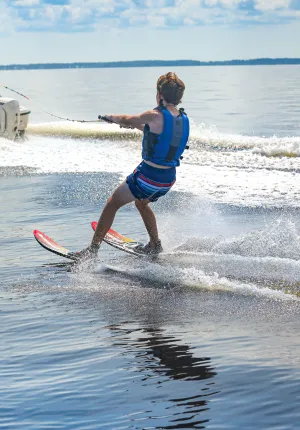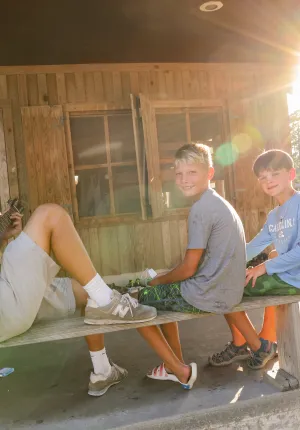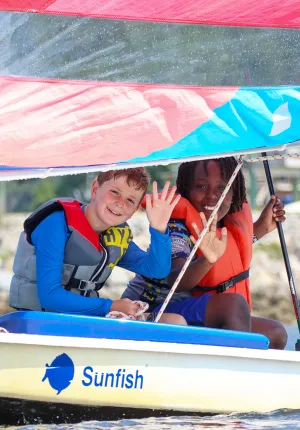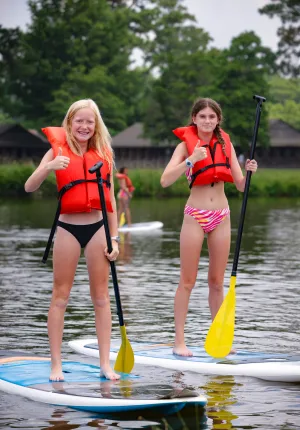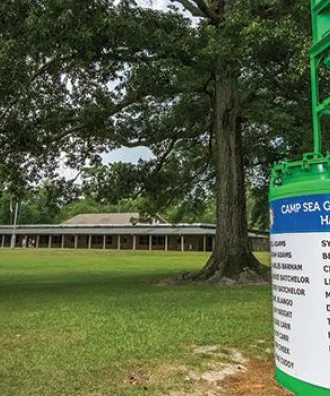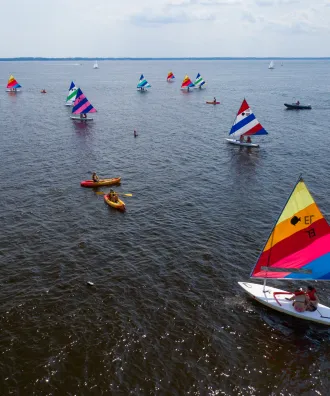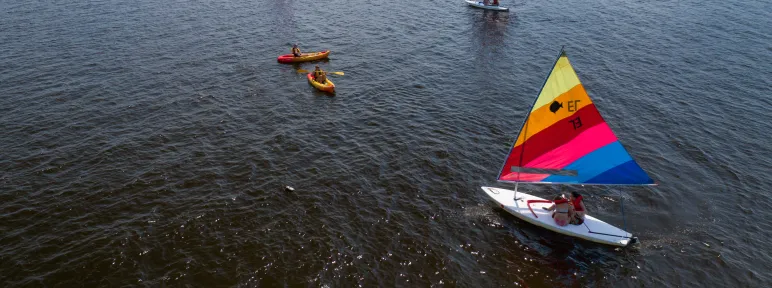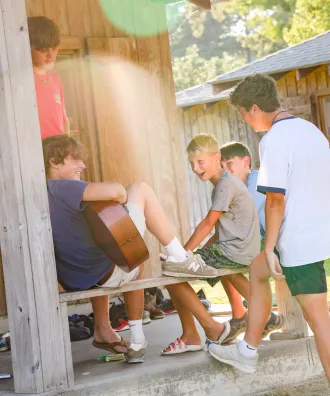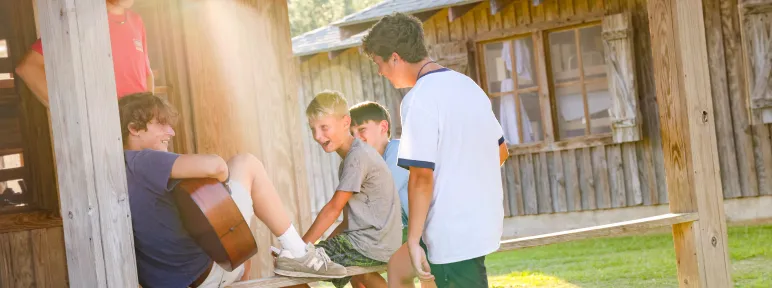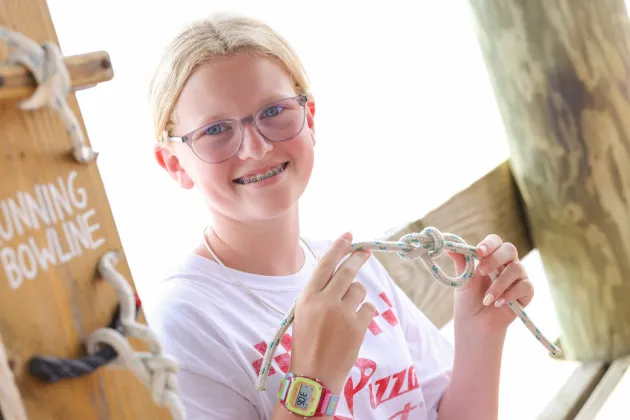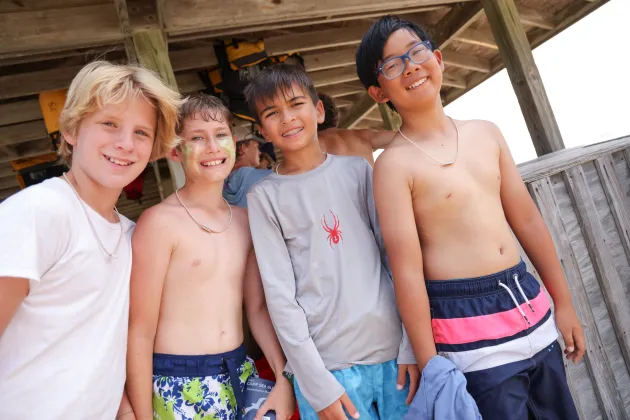The Experience of a Lifetime
YMCA Camp Sea Gull for boys and YMCA Camp Seafarer for girls are kindred, overnight camps located on the coast of North Carolina. Both camps have more than 700 acres of waterfront access at the widest part of North Carolina’s Neuse River.
Our program provides campers the experience, activities and environment they need to grow, learn and thrive. We are inclusive and welcoming places dedicated to serving families and campers from diverse cultures, backgrounds, faiths, gender identities and perspectives from across the country and around the world.
Camp Sea Gull
Spend a summer like none other at Camp Sea Gull for boys. Campers build their self-confidence by participating in hands-on activities taught by knowledgeable counselors and peers. Whether it’s learning to tie a clove hitch or taking the Sunfish out on their own, they earn ranks by developing skills in activities.
Camp Seafarer
Camp Seafarer for girls is located on the coast of North Carolina. Campers build their self-confidence by participating in hands-on activities taught by knowledgeable counselors and peers. Whether it’s learning to tie a clove hitch or taking the Sunfish out on their own, they earn ranks by developing skills in activities.
Celebrating 75 Years
2023 marks the 75th anniversary of Camp Sea Gull, and we're celebrating this milestone throughout the year.

The Definition of Fun
A full day to make their own. Practice seafaring knots, rig a sail on a Sunfish or understand the points of sail. Spend an afternoon on the basketball courts, the Canoe Lake or in the Environmental Hut. Campers set their goals and earn ranks to achieve them.

